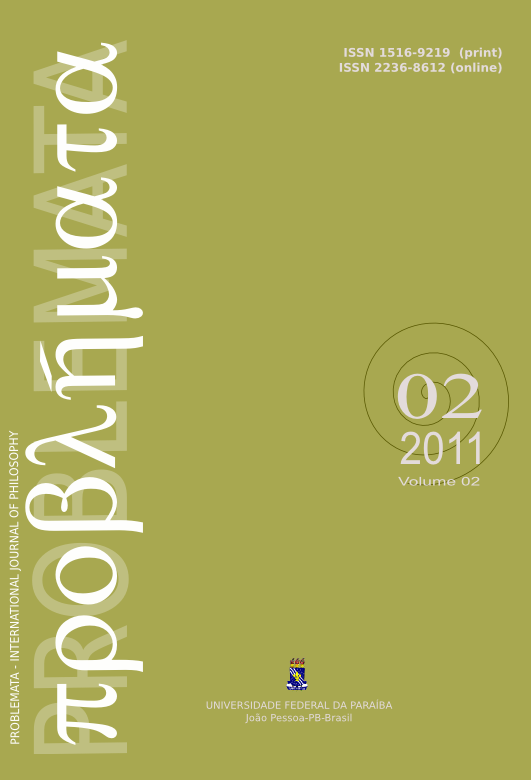ATTESTATION AND ATTRIBUTION: toward an ontology of if same as another in Paul Ricoeur<a href="http://dx.doi.org/10.7443/problemata.v2i2.11596"><i> <b>[doi: 10.7443/problemata.v2i2.11596]</b></i></a>
DOI:
https://doi.org/10.7443/problemata.v2i2.11596Keywords:
Attestation, Attribution, HermeneuticsAbstract
The following work is intended to deepen in the way of life of the human person by following the steps Paul Ricoeur elaborated for the recovery of the subject after his exaltation and his death. Explores their "hermeneutics of itself", with the emphasis on the notion of "attestation" and in the possibility of making in connection a himself as one that is interpreted as identity narrative in its theoretical dimension and that attests ordered by another dimension through the notion of "attribution" of remembrance.We can enumerate some philosophical intentions that pass through the work of Paul Ricoeur entitled if same as another. The intention is to dissociate two meanings of the identity and find the bridge that covers the distance of sense that arose between these two poles. The dialectic of selfhood and between ipseidad is contained in the notion of narrative identity. This narrative identity it will enable us the element of analysis of the himself in his interpretative dimension or theoretical.Downloads
Download data is not yet available.
Downloads
Published
2011-12-06
Issue
Section
Papers
License
Authors who publish with this journal agree to the following terms:
- Authors retain copyright and grant the journal right of first publication with the work simultaneously licensed under a Creative Commons Attribution License that allows others to share the work with an acknowledgement of the work's authorship and initial publication in this journal.
- Authors are able to enter into separate, additional contractual arrangements for the non-exclusive distribution of the journal's published version of the work (e.g., post it to an institutional repository or publish it in a book), with an acknowledgement of its initial publication in this journal.
-
- Authors are permitted and encouraged to post their work online (e.g., in institutional repositories or on their website) prior to and during the submission process, as it can lead to productive exchanges, as well as earlier and greater citation of published work (See The Effect of Open Access).





